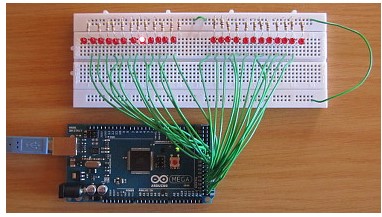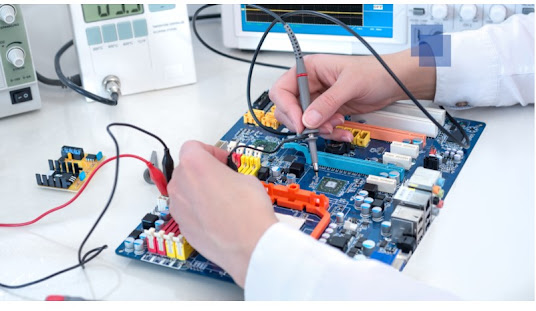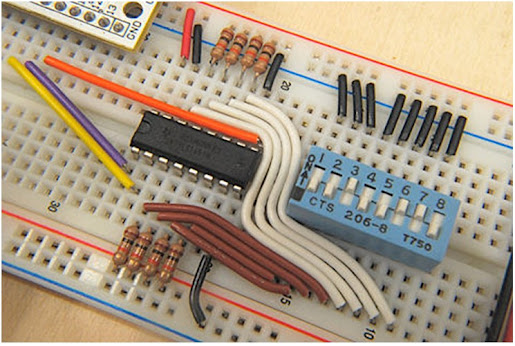TABLE OF CONTENT
- Electronics: Science of Controlling Electricity
- How do I start learning electronics?
- What are the basic of electronics?
- Is electronics difficult to learn?
- How long it takes to learn electronics?
- Who is the father of electronic?
- Is Arduino a good way to learn electronics?
- What is the study of electronics called?
- How do you build a circuit?
- What does a resistor do?
- Why do we learn basic electronics?
- What are the types of electronics?
- How do you teach electronics?
Electronics: Science of Controlling Electricity
It's not as difficult to learn electronics as you might think. You can start by reading up on electrical currents and circuits before moving onto more hands-on approaches like ordering building kits or creating your own circuits. How long will it take? It depends on how often and quickly you dedicate time to learning, but the good news is that there are plenty of free resources out there for beginners!
The field of electronics is a very important one that has expanded in recent years. If you are interested, here's how to get started with the science! If you're interested in electronics, then this blog post is for you! In it we'll talk about the basics of electronics and how to start learning.
How do I start learning electronics?
A lot of people ask this question, so I thought it would be good to write a blog post about the subject. This will help you get started on your journey into electronics! The first thing that you have to do is get yourself some basic tools. You are going to need something for soldering, and something for cutting wires with. The next thing you need is a working surface where you can work safely without anything getting in your way. Once you have these things setup, then there are two ways that beginners can start learning electronics: by reading about it online or by taking an introductory class at their local community college or university. After all of this has been done, then what's left is buying some parts and starting building projects!
First of all, if you are reading this blog post then you are probably interested in learning more about electronics! You may be wondering, where do I start? What should I buy to get started? How much will it cost me? All valid questions that I'm happy to answer for you.
What are the basic of electronics?
Electronics are an integral part of our lives. From the alarm clock that wakes you up in the morning, to the television in your living room, electronics play a major role in our everyday life. What many people don't know is how they work and what goes on behind the scenes. This blog post will take a look at some of the basic concepts of electronics so that you can understand them better!
Electronics can be confusing. So it is important to know the basics before you start building circuits and trying to create your own electronic devices. Elements of electronics is a course in which I teach students about the basics of electric circuits and how to use components. In this blog post, I will be discussing what a circuit is and some safety precautions that are important for people who are working with electricity.
Is electronics difficult to learn?
Is learning electronics a difficult task? Many people believe so, but is this really the case? In this post, we will explore the difficulties of learning electronics and whether or not they are truly warranted. We will also look at some of the best ways to learn about electronics and how you can get started in this interesting field. So, if you're curious about learning electronics, keep reading!
The age of electronics has come a long way. We have more technology than ever before and it seems to be going nowhere but up. However, there are many people who believe that electronics is just too hard to learn or understand. In this blog post, we will go over some basics of the most common electronic devices so you can decide for yourself if they are difficult or not.
See More Blog
- How Cell Phone Cases Can Lead to Scratches
- Christmas Wallpaper is Coming: How to Customize Windows 10 for the Holidays
- New Features and Enhancements in iOS 15: On-Device Intelligence, Maps, Weather, Wallet
- What type of monitor should I use with my computer?
- How to Fix a Dead Battery: Tips for Increasing Your Phone's Life
- Frying vs. Deep Frying: What is the Difference?
- Digital TV vs Analog: Which Is Better?
- The History of Cable Television: Origin and Expansion
- How Cameras Work: A Brief Overview on Devices and Photography
- The Difference Between tablets and smartphones: Screen Sizes
How long it takes to learn electronics?
Many people ask how long it takes to learn electronics. The answer is that it depends on a person's background, dedication, and willingness to learn. With that said, it is safe to say that most people can become proficient in electronics within a year or two. However, if you want to become an expert in the field, it may take several years. So don't get discouraged if you're not an expert right away – just keep learning and practicing! Electronics can be a very rewarding hobby or career. Thanks for reading!
It seems that with the popularity of Arduino, Raspberry Pi, and other electronic tinkering tools, just about everyone is asking how long it takes to learn electronics. There's no simple answer since everyone learns differently and at different speeds. But here are some tips to help you get started in learning electronics. First, start by reading about basic electronics concepts online or in a book. Then, practice what you've learned by building some simple circuits. And finally, don't be afraid to ask questions! The electronics community is filled with helpful people who are happy to share their knowledge. So don't hesitate to get started today and you'll be on your way to becoming an Electronics Wizard in no time!
Who is the father of electronic?
Franz Liszt, a 19th century composer, once said "The piano is the father of the electronic." While this statement may be up for debate, one cannot deny that the piano has been a longstanding staple in the development of electronic music. In this blog post, we will take a closer look at the history of electronic music and how the piano has played a role in its evolution.
In the beginning, there was a great man named Edison. Thomas Alva Edison was born in 1847 and is credited with being one of the most prolific inventors of all time. He patented 1,093 inventions including the electric light bulb and phonograph. In 1876 he carried out an experiment that would change society forever: he recorded voice on a wax cylinder for the first time ever.
Is Arduino a good way to learn electronics?
Arduino is a good way to learn electronics, because it requires more planning and thought than other simple electronic devices. Arduino also allows you to easily prototype ideas, before actually building them into a finished project. This makes it a great tool for learning the basics of electronics, as well as more advanced concepts. Additionally, Arduino is relatively cheap and easy to find online or in stores, making it a perfect choice for beginners.
Arduino is a microcontroller platform that is often used to teach electronics. It has a simple programming language, and it can be used to control things like LED lights and motors. But is Arduino the best way to learn electronics? Some people say no, because there are other platforms that are easier to use and have more features. Others argue that Arduino is a great way to get started, because it's easy to learn and you can add on features as you go. So what's the verdict? Arduino or not Arduino? That is up for debate.
What is the study of electronics called?
The study of electronics is called electrical engineering. Electrical engineers use the principles of physics and math to design, construct, maintain, and operate electronic devices. The field has exploded in recent years with new technologies such as smartphones and tablets being released every day.
The study of electronics is called "electronics engineering." Electronics are all around us. They power our computers, provide entertainment through televisions and radios, light up the sky at night with billboards... The list goes on. Electronics engineering is a great career choice for those who love to tinker with things or want to be their own boss.
How do you build a circuit?
Have you ever wondered how electronic devices work? How do all the tiny parts inside a phone or computer manage to communicate with each other and create something that can actually be used? The answer is circuits! In this post, we'll take a look at what circuits are, how they're made, and some of the basic components that go into them. We'll also explore some common circuit configurations and demonstrate how they work. Finally, we'll show you how to put together your own simple circuit. Are you ready to learn about circuits? Let's get started!
Have you ever seen those huge circuits in school textbooks and wondered how they work? Turns out, it's not too difficult to build a circuit - all you need is some basic knowledge about electrical engineering and some common household items. In this blog post, we'll walk you through the steps of building your very own circuit. So what are you waiting for? Let's get started!
What does a resistor do?
A resistor is a component that can reduce or increase the amount of electrical current flowing through it. They are made with resistive wire and usually have two ends: one end to be attached to an energy source such as a battery, and another end where you attach wires. It's important for engineers to know how much resistance they need in order to keep circuits from getting overloaded.
A resistor is an electronic component that limits the flow of electric current. They are used to control voltage, current and power in circuits by providing a specific resistance to the flow of electricity. When you need to know how much resistance your circuit has, simply use this formula: Resistance = Voltage x Current (V=I).
Why do we learn basic electronics?
Basic electronics is an important skill for any person who wants to start learning how to make their own gadgets. There are many different concepts that you need in order to understand basic electronics, but these concepts will help you throughout various classes and workshops. Knowing the basics of circuits will allow you to troubleshoot your projects when they go wrong, which can happen often with these types of projects. Learning how electricity works on a circuit board is another thing that every beginner should know before starting work with basic electronics because it's what makes everything on the board function together. Basic Electronics is not only helpful for beginners looking into making things themselves, but also has applications in other fields such as power engineering and electricians jobs where understanding of electronic circuitry
Basic electronics is the study of electric circuits that use diodes, transistors, and other semiconductor components to amplify or switch electronic signals. It's not just for electrical engineers! It's a great way to learn about how things work in an easy-to-understand format.
What are the types of electronics?
There are many different types of electronics in the world. Some people might think that all electronics are created equal, but this is not the case. There are various types of electronics that serve different functions and purposes. Understanding the different types of electronics can help you better use and appreciate them. In this blog post, we will discuss the main types of electronics and what they do. Stay tuned!
There are a variety of types of electronics, and each one serves a different purpose. Depending on your needs, you can choose the type of electronic that is best for you. Let's take a closer look at some of the most common types.
How do you teach electronics?
There is no one-size-fits-all answer to this question - each educator will have their own methods and techniques for teaching electronics. However, there are some general tips that can help you get started. In this blog post, we'll discuss three things you should keep in mind when teaching electronics: the basics of circuitry, important safety precautions, and helpful resources. Let's get started!
There are a lot of different ways to teach electronics. Some people might prefer to start with the basics, while others might jump right in and start tinkering. There are pros and cons to each method, but the most important thing is finding what works best for you and your students. In this post, we'll take a look at some of the different ways to teach electronics, as well as some of the advantages and disadvantages of each approach. So, whether you're a seasoned pro or just starting out, hopefully this post will give you some ideas on how to teach electronics in your own classroom!






